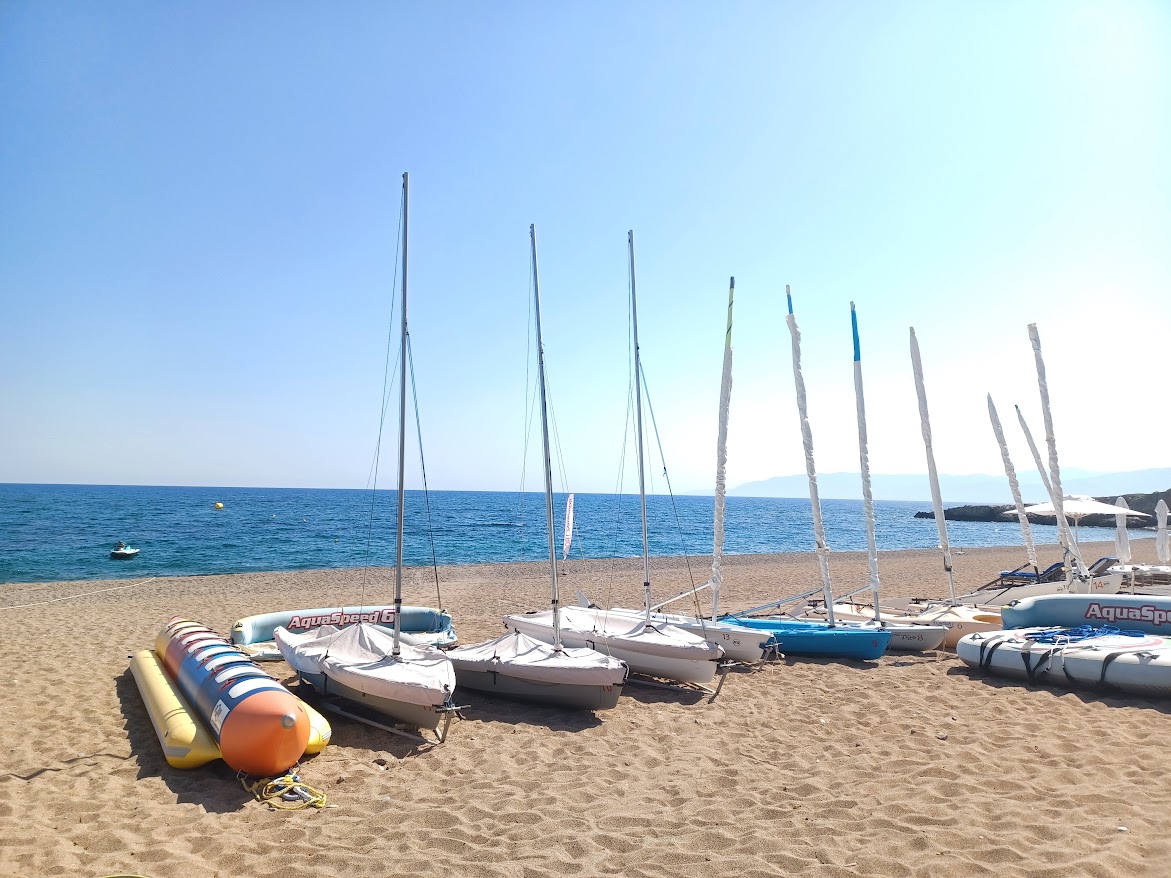Koumis says Cyprus reaching summer tourism peak, targets winter growth
Cyprus is expected to see a significant increase in winter holiday programmes from major British tour operators, according to Deputy Minister of Tourism Costas Koumis, who spoke after the conclusion of the World Travel Market (WTM) 2025 in London.
The event, now in its 45th year, drew more than 40,000 tourism professionals from over 180 countries, confirming the British capital’s central role as a global hub for the travel industry.
Koumis said that the messages received were overwhelmingly positive, explaining that the island’s record-breaking summer performance is set to continue into 2026.
“The messages, I would say, are only positive as the high number of visitors brought record performances that will certainly continue into 2026,” he said.
“What is now more important for us is to increase visitor numbers during the winter period. I believe that during the summer we have reached our peak,” he added.
He stated that the latest statistics confirm this trend, pointing out that from the British market alone, tourist arrivals between January and September 2025 increased by 5.2 per cent compared with 2024, 10.4 per cent compared with 2023, and 19.2 per cent compared with 2022.
Koumis said that discussions with the country’s strategic tourism partners at the WTM focused on expanding winter travel programmes for 2026, with encouraging responses from major operators.
“The messages we received on this issue are also optimistic, in the sense that at least the major tour operators are expected to increase, to a satisfactory degree, their winter programmes to our country,” he said.
During the exhibition, more than 70 sessions and panel discussions took place, featuring global tourism figures, airline and hotel executives, and experts in fields such as artificial intelligence and sustainable infrastructure.
Koumis participated in several of these sessions, including one titled “Rethinking Investment Models in Tourism: Creating Next-Generation Incentives”.
He also met with the Serbian Tourism Minister Husein Memic, for talks on future cooperation between the two countries.
The WTM’s central themes this year revolved around green transition, technological innovation, and adapting to new travel habits in the post-pandemic era.
Organisers confirmed that this year’s exhibition was the largest in its history, thanks to a 25 per cent expansion of the ExCeL exhibition centre, which enabled the participation of hundreds of new exhibitors and companies.
Earlier this week, Koumis expressed optimism for the upcoming tourist season after holding meetings with tour operators and airlines during the exhibition.
He said that all meetings were completed with complete satisfaction, emphasising that the main goal now is to increase visitor numbers during the winter season.
Koumis explained that Cyprus achieved a record level of summer tourism, adding that the island recorded the highest increase in hotel overnight stays in Europe compared to 2023 and 2024.
He also highlighted that Cyprus currently enjoys the highest revenue percentage among European Mediterranean destinations.
The deputy minister reiterated that the government is working intensively to strengthen the winter season, making the island a year-round tourism destination.
This goal is gradually taking shape, as an increasing number of hotels (particularly in Ayia Napa and Protaras) plan to extend operations by around two weeks at both ends of the season in 2026.
Indeed, several hotels in the Famagusta district are also expected to remain open throughout November 2025, helping to broaden the tourism window beyond the traditional summer months.
Industry figures view these efforts as a vital first step in building a sustainable model for year-round tourism.
Christos Angelides, director general of the Cyprus Hoteliers Association, said that for the plan to work, the entire tourism ecosystem must remain active.
“For us to succeed, hotels must take the risk to remain open, whilst local communities must support operations through restaurants and small shops,” he said.
“They will be able to work twelve months instead of seven, building a stable career in tourism,” he added, noting that Scandinavian and German travellers are key targets for the winter period.
Cyprus’ mild climate, with over 300 days of sunshine annually, offers a major advantage for extending the season.
Tourism statistics reinforce the trend. Between January and September 2025, arrivals rose 10.3 per cent year-on-year to 3.6 million, according to the Cyprus Statistical Service.
Tourism revenue for the first seven months of 2025 reached €1.89 billion, while total earnings for 2024 were €3.2 billion, up 7.3 per cent from the previous year.
The sector’s contribution to GDP increased to 14 per cent, from 13.3 per cent in 2024.
Pasyxe president Thanos Michaelides described the push for longer operations as timely and necessary, saying that establishing year-round tourism is crucial for greater sustainability in the hospitality industry.
“One of our main goals is to strengthen tourism between November and April,” he said, adding that there are opportunities to attract visitors from new markets.
Meanwhile, the Deputy Ministry of Tourism is working to diversify the tourism product, promoting sports, wellness, gastronomy, and conference tourism to reduce dependence on the “sun-and-sea” model.
“These initiatives,” officials said, “are part of a wider strategy to position Cyprus as an authentic, sustainable, year-round destination.”
As preparations continue, Cyprus’ focus on winter tourism and sustainable growth marks a defining shift for one of the country’s most vital industries.






Click here to change your cookie preferences